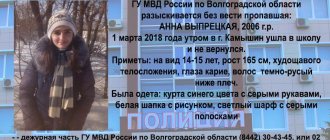What is it characterized by?
Life in a colony for convicts is characterized by a large number of restrictions, despite the fact that settlements of this type are not guarded.
The settlement is deliberately located far from other cities and villages, often in areas without roads.
As a rule, prisoners work in sawmills, felling trees. Thanks to this, serving the sentence is at least somewhat beneficial for the state.
The settlement colonies are only connected with the logging industry by the work of prisoners, but in essence they are a separate structure.
ATTENTION! The main task of the colony is the correction of criminal elements.
Such conditions of detention, different from prison ones, are provided to those criminals who still have a chance to reform. Many commit a crime through negligence, repent, and are normal people. And the switch from a strict regime to a colony keeps them from fully immersing themselves in the atmosphere and worldview of the criminal world.
Life in a settlement allows them not to sink even further and to withstand the moral years of imprisonment. Those living in the colony must work. Their participation in felling timber is beneficial for the industry, since ordinary people demand high wages for such difficult work in terrible conditions of impassable terrain.
ATTENTION! prisoners receive an order to compulsorily report to the colony to carry out logging work; they cannot refuse the living and working conditions established by the employer.
Kinds
In prisons, criminals serve sentences under various articles of the Criminal Code. Therefore, their living conditions are not all the same. What types of colonies are there in the Republic of Belarus? They are divided into two groups depending on the severity of the crime of the prisoners living in them:
- One group includes CP for those who have committed a criminal offense through negligence or intentionally, but the act is no more than average gravity.
- The second group includes those settlements where criminals live who have earned a reduced sentence under the Criminal Code by proper behavior.
The identification of two groups of CPs based on the severity of the settlers’ crimes does not mean that these settlements are really very different in any way. Usually the settlement looks standard, its main task is to separate those who committed a milder crime, violating the Criminal Code through negligence, from hardened criminals who committed serious atrocities.
Transfer to settlement
Those who are in a general regime colony are transferred to a colony after serving ¼ of their assigned sentence . At the same time, signs of correction and regret should be visible (no complaints, there is a conscientious attitude to work, participation in social life).
If you are in a maximum security colony, you can apply for transfer to a prison camp after serving 1/3 of your sentence. If a suspended sentence was assigned, but the law was violated again, you will be able to transfer to the police station only after serving half of the prison term.
IMPORTANT! When committing a particularly serious crime, you can get the opportunity to transfer only after 2/3 of the term.
What is present on the territory
A colony is a small village inside a populated area. Since there is almost everything necessary for human habitation here:
- medical institutions that can provide outpatient and inpatient care;
- dining room , where you can always get the necessary food;
- a store where convicts can purchase necessary goods and products;
- bathhouse to keep yourself clean;
- a school so that children living with convicts can continue to study fully;
- a library where you can always get the necessary literature;
- cinema hall or assembly hall for cultural leisure.
Separate meeting rooms are also provided if visitors come from other cities. You can learn about this in more detail in the video presented.
Colony-settlement as the most loyal way of implementing punishment in the form of imprisonment
As a measure to correct the behavior of a criminal, a colony-settlement can be assigned if the act was not intentional, entirely due to a combination of circumstances or in defense of one’s own interests, that is, by definition, it was not intentional. People who did not intend to harm anyone's interests, in most cases, regret the consequences and the punishment towards them should be nominal, only to confirm the possibility of social coexistence.
The punishment, when a colony-settlement is designated as a place of serving imprisonment, is nominal in nature and is more reminiscent of a long shift at a logging plant. Restrictions on rights and freedoms take the form of testing the convicted person’s ability to function normally, without antisocial behavior or going beyond what is permitted.
The organizational form of colony-settlements does not change when the population serving a sentence changes, and the division itself is conditional and aims to distinguish subjects with more profound defects in the behavioral model from less malicious offenders. What can you have with you in a colony settlement? The next section will tell about who is serving their sentence in penal colonies. According to the Criminal Code, at least two-thirds of the imputed term of imprisonment will have to be served for transfer to a colony-settlement by those convicted of committing an act that had grave consequences. A type of correctional institution of the Federal Penitentiary Service, located mainly in wooded areas of the northern and eastern regions of Russia and representing buildings without fences, is called a colony-settlement.
Neglect of the protected perimeter is compensated by the remoteness of such settlements from cities and other significant settlements, representing mining cooperatives engaged primarily in felling and logging. To receive legal assistance, convicted persons, upon their applications, are granted visits with lawyers or other persons entitled to provide legal assistance. At the request of the convicted person, visits are granted in private, out of earshot of third parties and without the use of technical means of listening.
Such visits are not counted among the number of visits established by law, their number is not limited, they are held for up to 4 hours during non-working hours for convicted persons and only during the hours from rising to lights out. At the request of the convicted person, visits can be replaced by a telephone conversation, and long visits can be replaced by short-term ones; in the educational colony there is also a long-term visit with accommodation outside the correctional institution - short-term with exit from the colony. Long-term visits are not provided to those in medical institutions, they are replaced by short-term ones.
Read other articles on the site:
- Complaint against the decision to refuse to initiate a criminal case for beating
- License to trade in weapons and permission to store weapons
- Theft is different from theft of a car or other vehicle
- List of required documents on civil defense for enterprises
- Having recognized the investigator’s refusal to initiate a criminal case as illegal, the judge
Dear colleagues, I wish each of us to hold high the title of lawyer, unswervingly adhering to the principles of impartiality and objectivity!
Procedure for execution of punishment
At the legislative level, the following procedure for the execution of punishment is established for persons sentenced to stay in colony settlements:
- There is no security, but the actions of the convicts are monitored by the administration.
- Convicts can move freely throughout the territory of the colony.
- Movement outside the colony is possible only with consent from the administration.
- Persons in a colony may carry cash and valuables and dress in civilian clothes.
- Convicts can receive parcels and have visits.
Accommodations
The necessary conditions for a normal life are created for convicts. An outpatient clinic and a hospital, a school, a canteen, a store, a bathhouse, a cinema hall and even a library should operate on the territory of the command post. But at the same time, there is a certain daily routine that all prisoners living here must obey. The regime is quite strict:
- Wake up at 5-6 o'clock in the morning. Time is allocated for physical education and water procedures.
- Then there is a check.
- Next - breakfast.
- Afterwards, the convicts go to work. Meals are eaten at lunchtime.
- After returning from work - dinner.
- In the evening, educational activities are held, and half an hour of personal time is also given.
- Sleep should last 8 hours.
If convicts are still studying in educational institutions, the working hours will be slightly different . Women's colonies will also be subject to this procedure.
Conditions of detention in colony settlements in the Criminal Executive Code of the Russian Federation
The main provisions on the topic under consideration, as previously announced, are indicated in the Criminal Executive Code of the Russian Federation in Chapter 16 in Articles 128 and 129. Based on Article 128 of the Penal Code of the Russian Federation, 4 grounds for placing prisoners in colony settlements can be distinguished:
- the punishment is served for committing a particularly dangerous recidivism;
- persons who were previously sentenced to life imprisonment, but received pardon and a limited term of imprisonment, the same applies to those for whom the death penalty was commuted to detention in a correctional facility (now not applicable due to the current moratorium on the death penalty);
- persons who have not provided written consent for this transfer from one institution to another;
- persons who have not undergone mandatory treatment, as well as those requiring special treatment in closed medical institutions.
Returning to the provisions of the Criminal Executive Code of the Russian Federation, one should refer to Article 129, which provides explanations on the main features of the regimes provided for “settlers”, namely:
It is worth noting once again that, despite the apparent simplicity and mildness of serving a sentence in a penal colony, the actual conditions of detention and reality differ from what will be explained below, and this must be taken into account.
The provided conditions are not limited to the above points, since, in addition to these characterizing features of an individual candidate prisoner, he does not meet the following criteria.
What to do if you need to send medications to a convicted person?
“Parcels, parcels and parcels with medicines and medical supplies received by convicted persons in accordance with a medical report are not included in the number of parcels, parcels and parcels established by Articles 121, 123, 125 and 131 of the Criminal Executive Code of the Russian Federation. Medicines and medical supplies are sent to the medical units of the penitentiary system for subsequent use in the treatment of the relevant convict,” says Article 16 of the order “On approval of the internal regulations of correctional institutions.”
Sick convicts and disabled people of groups I or II can receive additional parcels. The question of their quantity and contents is decided by the medical commission or the attending physician of the hospital within the penal system where the person is being treated.
Don’t forget another important point: in addition to parcels, prisoners can also receive money transfers. They are credited to the person’s personal account. He must be notified of the receipt of money no later than three days from the date of receipt.
Going on a date in prison: how many are allowed and what can you take with you?
Now more than ever, your relative needs your support. And that means meeting you...
Provided in a special room with the prisoner’s relatives or other persons - in agreement with the head of the colony.
The room where the meeting takes place is always equipped with a telephone - if anything happens, you can use it, and armed guards will immediately appear.
Otherwise, you can feel at home – relatively, of course. Can I take my phone with me to the penal colony? At a certain hour after the end of the visit, a bus comes for the relatives, and the prisoners go to the checkpoint. Premises for short-term and rooms for long-term visits in prison in the photo: A person who has been sentenced to “general regime” can remain in the same pre-trial detention center where he was awaiting trial - in the housekeeping unit. In addition to guaranteed parole, subject to hard work, such prisoners are also allowed long visits.
And short-term meetings will no longer last two hours, but four.









